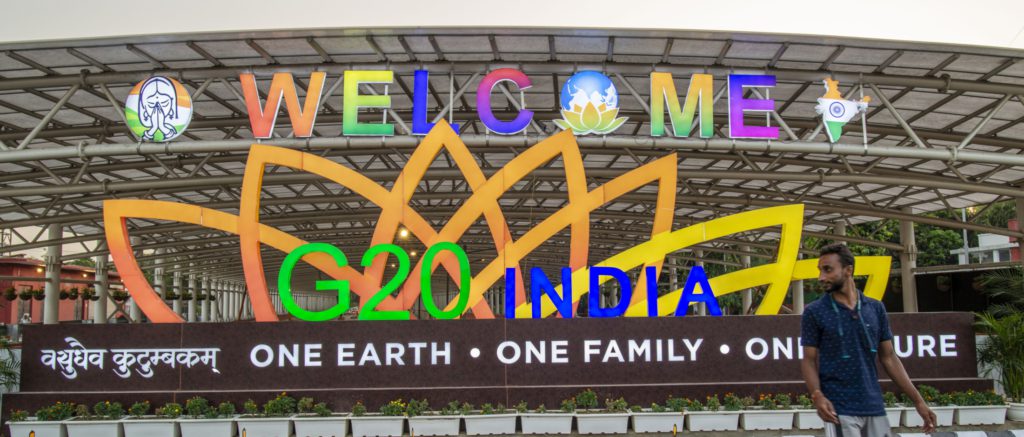
by Sudhanshu Roy, 9 September 2023
In a joint declaration, several well-respected human rights organizations, including Amnesty International, the Asian Federation Against Involuntary Disappearances, the Asian Forum for Human Rights and Development, CIVICUS: World Alliance for Citizen Participation, Front Line Defenders, and the Kashmir Law and Justice Project, have issued a compelling appeal to address the urgent issue of human rights violations in Indian Occupied Kashmir (IOK). This plea is directed towards representatives of G-20 member countries, guest nations, and invited international organizations. It underscores the pressing need to end these violations and secure the release of incarcerated human rights defenders and political prisoners ahead of the G-20 summit scheduled to take place in New Delhi, India.
The open letter spotlighted the ongoing repression in IOK since India’s revocation of Article 370A and Article 35A in 2019. It emphasizes the necessity for international intervention to ensure compliance with international legal obligations and to safeguard the rights and freedoms of the people residing in the region. Since India’s decision to revoke Article 370A and Article 35A, which effectively stripped Jammu and Kashmir of its semi-autonomous status in 2019, the government has continued to implement repressive policies. These policies have included restrictions on freedom of expression, peaceful assembly, and association. Furthermore, there has been a failure to investigate and prosecute alleged violations committed by military, paramilitary, police, and other forces in the region. It is crucial to note that India and Pakistan have asserted their rights to this contested territory since 1947, with each nation administering different portions.
The letter also highlights specific instances of human rights defenders and journalists being targeted. For example, Khurram Parvez, a prominent human rights defender and the director of the Jammu Kashmir Coalition of Civil Society (JKCCS), was arbitrarily detained by India’s National Investigation Agency in November 2021. He was arrested under the Unlawful Activities (Prevention) Act for “funding terrorism under the garb of protection of human rights.” In March 2023, Irfan Mehra, a noted Kashmiri journalist with connections to JKCCS, was similarly summoned and arrested for his association with the non-profit organization.
The letter urges the Indian government to take immediate and unconditional steps to release Parvez and Mehraj while dropping all charges against them. It also calls for ending the persecution and targeting of Kashmiri human rights defenders, journalists, dissenters, and political prisoners. Additionally, it calls for the free operation of civil society in IOK and an end to the obstruction of international civil society and intergovernmental organizations by Indian authorities. The ongoing arbitrary arrest and detention of individuals for exercising their human rights cause serious concern. Accountability and remedies must be provided in cases where such abusive actions are taken. The Indian government has faced repeated calls to address fundamental issues with its anti-terrorism framework and to prevent its misuse to smear and silence human rights defenders.
In conclusion, this joint appeal by reputable human rights organizations underscores the persistent human rights challenges in Indian-Occupied Kashmir. With the G-20 summit in New Delhi approaching, it becomes imperative for member countries and international organizations to take a principled stance against human rights violations, political imprisonments, and the stifling of civil society in the region. The release of detained human rights defenders like Khurram Parvez and Irfan Mehraj and the cessation of repressive policies are essential steps towards upholding justice and fundamental rights in Kashmir. The world’s attention is now on G-20 member countries to fulfill their obligations under international law, advocate for change, and ensure that the people of Kashmir are no longer denied their fundamental human rights. The voices in this letter echo a global call for justice, accountability, and the protection of human dignity in one of the world’s most contested territories.
